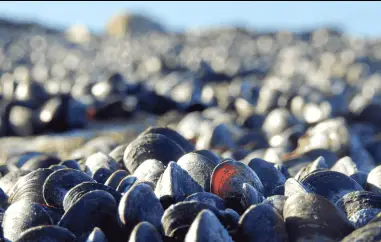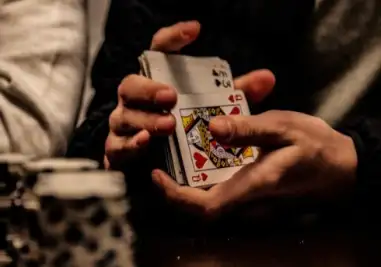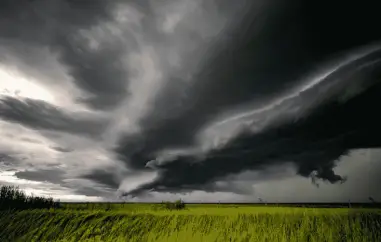Two men sit fishing by a river. A hearse crosses the nearby bridge and one of the men stands up, removes his cap, holds it two handed at his front and bows his head in respect as the procession passes. The other man looks at him and says "that was a very nice gesture". The man sits back down, grabs his fishing rod, resumes his position and says "well I was married to her for 40 years".
Death evokes a plethora of human reactions. Death is unlikely to yield laughter directly but the entire black comedy genre is built on the premise that laughter can arise from cynicism. The joke above and the popularity of gallows humour only goes to show the complexity of the relationship we have with the ending of life and whether such jokes cause side splitting guffawing or not, they are sufficiently removed from any discernible context to cause great personal offence. When it comes to the death of family, friends or loved ones, our society, on the whole, adheres to what have become established social norms. We send sympathy cards, uniformed forces salute passing hearses, loving epitaphs are inscribed, and touching tributes paid. Of course, no-one could begin to even attempt to understand the inner-workings of a grieving mind but our behavioural expression in response to loss is usually within the parameters of societal norms. However, over the course of time, these norms change and regardless of religious belief systems, funeral and memorial service traditions have moved in line with perhaps a changing attitude to death. The 'Celebration of a life' perspective has seen black ties, funeral coats and veils replaced with respectful yet certainly 'thought out' ensembles and what were solemn services, become colourful, multimedia memorials to the person in question. We move with the times which, in turn, has meant we position death in the context of life and are happy to speak of hobbies, achievements, character strengths and idiosyncrasies; drape coffins with sporting colours, leave symbolic props at significant sites in such a way that a person's parting is marked by explicit acts of subjective respect. And so it should be.
The communication of one's passing, until very recent times, was limited to news announcements for anyone in the public sphere and for the rest, written notifications and word of mouth. This is how friends found out and friends of friends. Whether via telephone, letter or personal visits, these were carefully constructed messages couched in supportive language, tailored to the unfortunate recipient. However, we continue to move with the times and social media, being such an influencing element of people's daily existence, has become, for better or for worse, a platform for communication of all conceivable content, including death. The problem is the range of content posted on a public forum ,that is totally without control or censorship, makes it difficult for a distinction to emerge between what is banality (what I had for dinner) and what should be treated with the utmost respect, dignity and tenderness. This is not helped by the fact that rules of language, grammar and syntax on social media are forgotten so as to make way for more words. How words are put together has become unimportant as long as the gist of the message is portrayed. In fact, there now exists a sub layer of 'text-language' that has become acceptable among a generation, born in the first days of text messaging in an effort to economise text due to limited character allocation, which has flourished to the extent that it has been accepted in main stream education. Social media is so close to hand and readily accessible that within seconds of any significant event, feeds are constantly refreshing with new reactions to them, and this includes death and tragedy.
As a result of this, social media is open to reactionary posts to death and with that comes another shift in acceptable social norms with regard to speaking of it. It becomes an open forum where people with several degrees of separation from the deceased can be the bearer of bad news, to which others post their sympathetic reactions and so on and so on. Tributes or messages of remembrance can be typed in a rush so as not to be seen as the one who didn't mention the passing of person X. A mark of respect by an act of silence has almost totally about turned, to present a situation where, although technically still silent, people virtually shout from the rooftops in the social media world to notify of or pay respect to he in question. It is not for anyone to judge another's reaction to tragedy but the language that is often used means it sits uncomfortably with many due to the stark contrast of formal writing, traditionally synonymous with death, and five-hundred characters worth of a (however sincere) message that does not conform to those parameters. "Just heard that person X has died!!!!!!!!!" makes technically correct use of the exclamation mark - a punctuation mark to imply astonishment, strong feelings, dramatic effect or high volume, but the placement of multiple marks for additional emphasis is generally considered unacceptable in formal prose. The same person I doubt would exercise this practice in the aforementioned 'traditional' writing scenarios.
As I said, social media has changed our lives to an enormous extent. It provides a welcome personal space for rants, updates, jokes, pictures and videos in what has to be an uncensored, informal environment. However, is death and tragedy something that affords a lack of censorship and informality? Well as I said at the start entire comic genres are built on just this, but they have the privileged position of always remaining out of reach, distinctly disconnected from real life. Communication on social media does not. It is our lives. It is where we voice our opinions, thoughts and feelings. As language continues to change and develop as a result of this tool, so too will our attitudes to tragedy and loss. I sincerely hope however that sincerity is withheld as structure crumbles and I never see multiple exclamation marks on a headstone.














































